Boris Johnson pauses deal after MPs vote down timetable program
Boris Johnson has paused his Brexit deal after MPs accepted it but rejected his fast-tracked timetable.
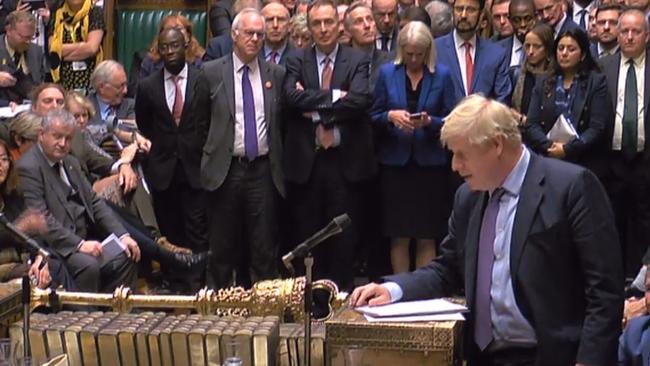
Europe appears to be on course to allow a short Brexit extension after Boris Johnson paused his bill early on Wednesday morning (AEDT).
European Council president Donald Tusk tweeted that he would recommend EU leaders accept the British PM’s request for an extension after MPs voted down his fast-tracked timetable to get the Brexit legislation passed by October 31.
Following PM @BorisJohnson’s decision to pause the process of ratification of the Withdrawal Agreement, and in order to avoid a no-deal #Brexit, I will recommend the EU27 accept the UK request for an extension. For this I will propose a written procedure.
— Donald Tusk (@eucopresident) October 22, 2019
Earlier, Mr Johnson given a huge boost to his Brexit bill when it was passed through its first hurdle in the House of Commons - the first time a Brexit deal had been passed in the House of Commons.
But he was able to enjoy his first big win in the parliament as prime minister for less than 20 minutes when, in extraordinary scenes in Westminster, MPs voted 329 to 299 - a majority of 30 - against his timetable.
Mr Johnson immediately paused the Brexit legislation and said he would speak to the European Union leaders about their intentions.
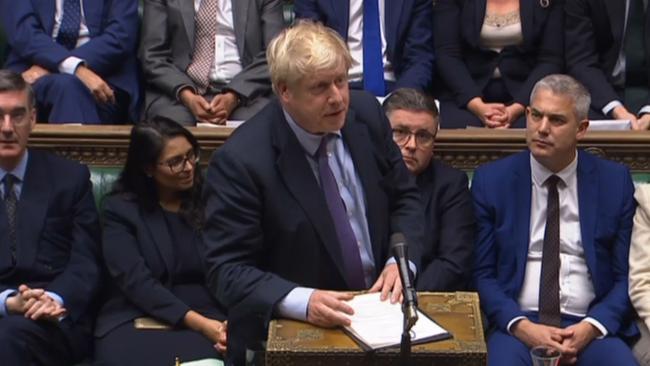
If the EU grants a short technical extension of up to ten days it is understood he may try and continue to get the Bill through its various stages. But if the EU wants a longer extension, including the three months demanded by parliament under the Benn Act, the prime minister has flagged he will try and call a general election.
MORE: Janet Albrechtsen writes: Brexit about our liberties | Boris deal ‘house of cards in tornado’| All news and analysis on Brexit
Mr Johnson does not want the bill to continue through the committee stage and face a series of amendments by Labour, including a confirmatory referendum and a substantial change to the EU with a customs union.
Mr Johnson said he was “joyful’’ that the parliament had embraced a deal in principle - the first time a Brexit deal had been passed - and said he didn’t want to overlook the significance of the moment but was “disappointed’’ the House voted for further Brexit delay.
“Until they reach a decision we will pause this legislation, our policy is not to delay and to leave on October 31 and that is what I will say to the EU,’’ Mr Johnson said.
“One way or other we will leave with the deal (to which) this house has given its assent.’’
In a quick-paced series of votes, the Withdrawal Agreement Bill passed in principle by a healthy margin of 30: 329 votes to 299, but the win allowed the bill to be amended in the coming days.
However the crucial program motion that followed was defeated, with opposition parties, including the 10 members of the Democratic Unionist Party joining together to ensure Brexit would be delayed. That vote was defeated 322 to 308.
Labour leader Jeremy Corbyn said: “This house emphatically has rejected the prime minister’s deal. Tonight the house has refused to be bounced into debating a hugely significant piece of legislation in two days and without analysis of economic assessment.’’
Mr Corbyn offered that he would work with gusto to agree a reasonable time time table “to debate, scrutinise and amend the detail of this bill’’.
UKIP founder Nigel Farage said:‘’Do or die is over, we have now moved on to dying in a ditch. We will not be leaving the EU on 31st October.’’
With the Brexit bill suspended, The leader of the House Jacob Rees-Mogg announced that the parliament would sit for the next two days debating the Queen’s Speech and then on Friday the House won’t sit.
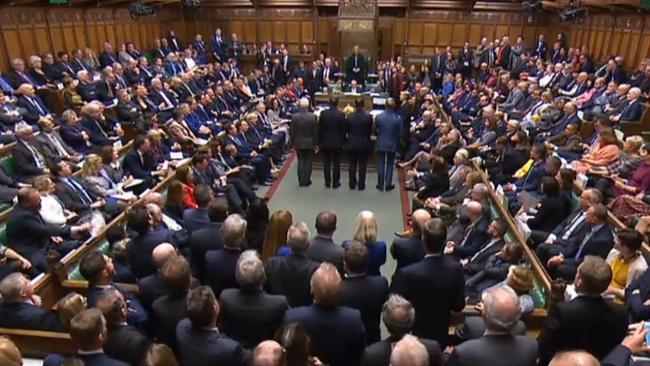
Johnson to call election?
Mr Johnson had already threatened to call a general election within hours if Westminster refused to accede to his fast tracked timetable to try and get his Brexit deal passed by October 31.
The prime minister had warned that voting against his government schedule would delay Brexit for three months if the EU agreed to an extension.
“I will in no way allow months more of this,’’ Mr Johnson said.
“If parliament refuses to allow Brexit to happen and instead gets its way and decides to delay everything until January or possibly longer, in no circumstances can the government continue with this. And with great regret, I must say the bill will have to be pulled and we will have to go forward to a general election.’’
During the debate on the program bill, MPs complained that they had longer scrutiny about buying a kitchen or a sofa, but Tory MP Iain Duncan Smith said most of the deal had been previously published and debated at length because a lot of it hadn’t changed.
If the EU offers a short extension, of around ten days, Mr Johnson might agree to moving beyond the October 31 Brexit date, but Downing Street doesn’t believe the EU would insist that any such extension would be the final option.
Mr Johnson has tried twice before to call a general election but has not had the numbers to satisfy the two-thirds majority required under the law.
Another option would be to put forward a bill “notwithstanding the Fixed term Parliaments Act’’ but while that only requires a simple majority the bill could be amended during its passage through the Commons and the Lords.
If Mr Johnson calls a no-confidence motion in his own government, he, or the opposition, would have two weeks to form a new government and only if that failed would a general election be triggered.
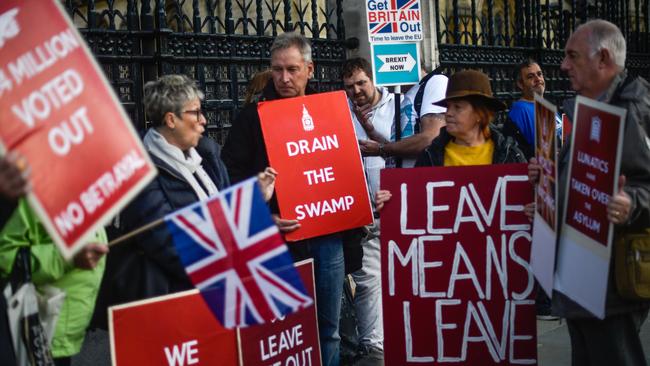
Johnson’s deal threat
Earlier Mr Johnson said he could be forced to pull his Withdrawal Agreement Bill if Labour succeeds in one of several wrecking attempts by attaching a Customs union or confirmatory referendum this week.
Overnight, Mr Johnson told parliament he would withdraw the Brexit deal and call for a general election if parliament doesn’t pass the government’s timetable.
The Brexit conundrum has reached yet another flashpoint with rebel plotting, opposition obstruction and influence from the House of Commons Speaker John Bercow, meaning there is no certainty about the outcomes.
A general election, a further Brexit extension, or a vote of no confidence are still hovering over the parliamentary mess after Mr Johnson’s plans for a simple yes/no vote on the deal he agreed to last week with the EU was scuppered by the Speaker.
The cabinet minister in charge of preparations for a no-deal Brexit, Michael Gove, said the odds of leaving without a deal on October 31 had increased, requiring an intensity of leaving arrangements.
Mr Johnson faces a series of difficulties to ram the withdrawal bill through parliament in just three days in order to leave the EU by his “do or die’’ deadline of October 31.
Late on Tuesday or early Wednesday, the Commons was expected to reject the government’s fast-track timetabling of the bill and insist on greater line-by-line scrutiny of the 115-page legal text released on Monday night.
The bill allows for parliamentary scrutiny and approval of the next stage after Brexit, negotiating the future relationship and trade deals with the EU. It keeps Britain under EU legal jurisdiction until the end of the transition period. Northern Ireland is mentioned 189 times in the text to formalise its leaving of the EU with the rest of Great Britain but yet being subject to EU regulations on some goods.
Labour was planning to force a UK-wide EU Customs union onto the bill, which would substantially change the substance of the Brexit deal. Labour also wants to amend the bill with the holding of a second referendum, which, depending on the result, would delay Brexit by at least six months or cancel it altogether.
The last time the Customs union and referendum options were put to indicative votes, it was a close call and if just a handful of MPs change their mind, either option could gain enough support to pass.
Mr Johnson will try to avoid both scenarios by pulling the bill if his minority government cannot get enough Labour rebels to support it. He could also try to force an election, which has failed twice before.
The latest Westminster dramas come after Mr Bercow was accused of bias after he ruled out the government’s plan on Monday night to hold a meaningful vote on the Brexit deal.
Mr Bercow rejected the government’s simple yes/no vote, claiming it would be “repetitive and disorderly to do so”.
Mr Bercow said it was unconventional to allow the vote so soon after Saturday’s decision on rebel Tory MP Oliver Letwin’s amendment that ruled the withdrawal agreement had to pass legislation before the Commons would give its ratification.
“Today’s motion is in substance the same as Saturday’s motion, and the house has decided the matter. Today’s circumstances are, in substance, the same as Saturday’s circumstances,’’ he ruled.
Tory MP and Brexiteer Bernard Jenkin said “it’s becoming remarkable how much you please one lot and not the other lot’’.
He said he would scrutinise the decisions of the Speaker in a sub-committee.
“It is most unusual for a speaker so often to prevent the government having a debate on the matters which the government wish put before the house,’’ Sir Bernard said.
Mr Bercow fired back: “I am entirely untroubled by it.”

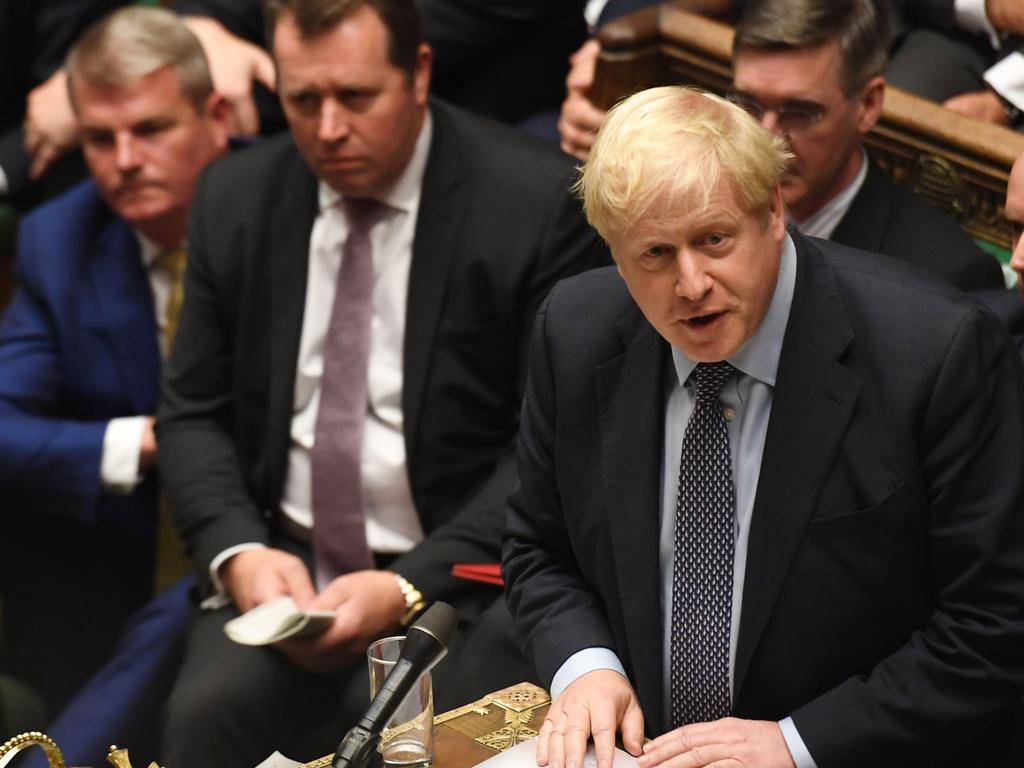


To join the conversation, please log in. Don't have an account? Register
Join the conversation, you are commenting as Logout